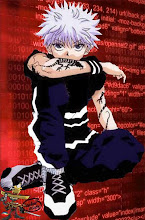The closing stages of club football in the 2007-08 season were to prove a monumental conclusion for Premier League football as two of its representatives, Chelsea and Manchester United, reached the Champions League final, which was staged in Moscow. For Blues captain John Terry, though, it was to be a finale beset with mental torture, as his spot kick slip aided the Stamford Bridge outfit's demise during a penalty shoot-out.
Many commentators waived on making judgement, indicating the mark of the player would be how he rose from a moment that left him puffy-eyed and inconsolable. The lionheart leader bounced-back with immediacy as the new season kicked-in, with a consistent run of form in both domestic and continental duty that stretched up until the FA Cup final, inclusive of a host of match-winning performances. Furthermore, he helped ease a new boss into the affairs of the club, twice.
The catalyst for his rebuilding was arguably a vote of confidence handed to him by national manager Fabio Capello, who handed him the captain's armband, despite toying with the notion of offering the duty elsewhere during the build-up to England's reintroduction to competitive action - the 2010 World Cup qualifiers.
Terry, like the rest of the Chelsea clique, had to adapt to two different types of training and management: the highly-heralded uncompromising and authoritative style of Luiz Felipe Scolari who, ironically, blamed prevalent "player power" at the Blues for his swift downfall, and the calm, cultured, and tactically-experienced nature of journeyed interim boss Guus Hiddink, brought in mid-season.
During Scolari's tenure, Terry marvelled against Roma in the group stages of the Champions League, where his sole goal in the third game won the Blues three crucial points. For large periods of the match, the Italian side frustrated Chelsea, who were playing at home. Scolari seemed unable to mastermind a route through Roma, and it was the away team who looked to have the greater of the plays.
Terry, though, in typical timely fashion, shone with one particular tackle that denied an incisive Giallorossi attack. He then towered to meet a cross late on in the game to head home.
Likewise Terry was to again shine in Europe under Hiddink, inspiring his side to claim a clean sheet in Barcelona's Camp Nou stadium in April, the first team to do so all season, in any competition. This feat was made all the more impressive when one footnotes the fact Barca's attacking trident of Thierry Henry, Leo Messi and Samuel Eto'o had borne fruit more than 100 times.
Chelsea's improvements under Hiddink were vast. The in-house bickering seemed to have ceased, the dressing-room factions that grew under Scolari appeared united and, despite failing to catch Manchester United in the Premier League, the west Londoners negotiated their way to the final of the FA Cup, a match in which they took on Everton.
Terry again performed admirably. Aside from a minor mental blip made when lining up against Louis Saha that allowed the Frenchman to get a sniff at goal, the defender went on to intercept astutely, read the game well, showed good positioning, and was noticeably delighted to have guided the Blues to a much-needed piece of silverware.
Subscribe to:
Post Comments (Atom)

0 comments